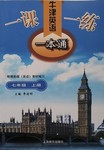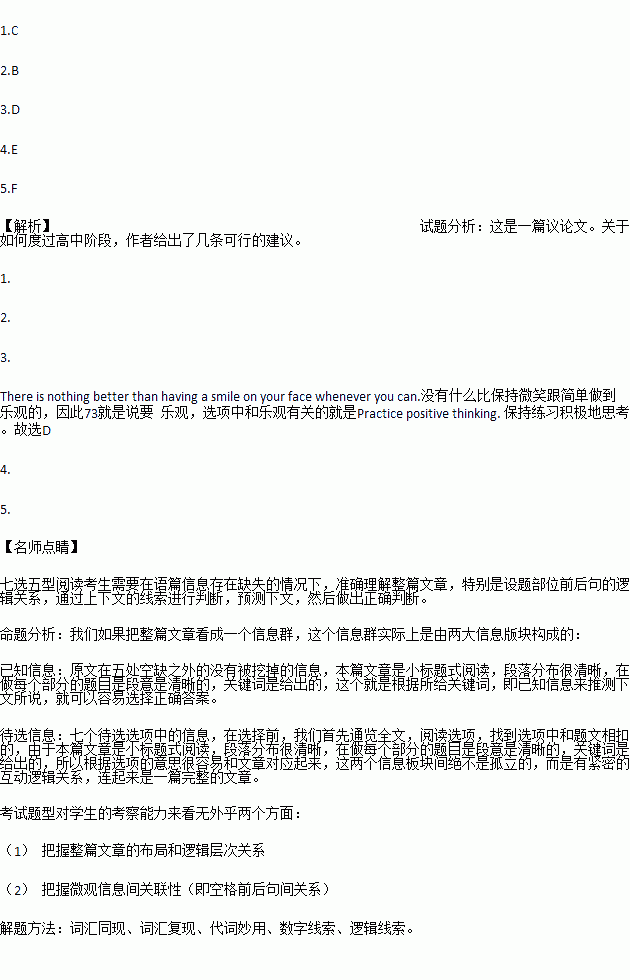题目内容
How to Survive High School
High school can be terrible phase if you get it all wrong. Find out how to survive high school with a few easy tips.
1. Be Yourself.
High school is a fun time to make new friends, meet new people, date and socialize. Make friends with all kinds of people and not just a group which you are comfortable with. Most peer pressure cases are because of the weak image created by freshmen. 1. Don’t give in to anyone’s wants.
2.2.
Choose your friends carefully and make sure you won’t get influenced by anyone. Socialize, but by judging who you can connect to. You will find friends, but stay away from the ones who don’t want to be your friends as a bad company is tempting, but the good one is true.
3. Be Optimistic.
There is nothing better than having a smile on your face whenever you can. 3. Don’t be afraid to make friends, don’t get aggressive or personal with anyone and treat others the way you want to be treated. Respect your teachers and classmates and try to be helpful if you want the same in return.
4. Be Confident.
When you believe in yourself, others believe in you. Talk, walk and address people confidently and this will create a strong image about you. 4. Be creative and unique and learn to set trends. Confidence is one quality you grow with, and people respect you for that.
5. Love High School.
5. Make the most out of it, and you will never get those moments back. Come up with frank ideas, get a detention, top your class, make the best friends, drink, go to prom, party, but just make as many memories as you can!
With these tips to survive high school, you will surely be proud of graduating as an all-round approaching adult.
A. And always wear your smile
B. Keep Good Company
C. Just be yourself and create a strong self-image
D. Practice positive thinking
E. Do your thing, and don’t imitate others
F. Fall in love with it
G. Study as hard as you can in your spare time
 一课一练一本通系列答案
一课一练一本通系列答案 浙江之星学业水平测试系列答案
浙江之星学业水平测试系列答案

 since the first settlers arrive. It was a national ball what was liked by many Americans at that time. Although baseball possibly developed from an English game, it is now thought of like an American sport. From the Little League to the Major League, player of all skill levels enjoy testing their power on the “ Field of Dreams”. Famous players, exciting music but the standard stadium food of hot dogs, popcorns and peanuts are popularly among Americans. In a fact, Americans make go to the baseball game a favorite summer outing for many Americans nowadays.
since the first settlers arrive. It was a national ball what was liked by many Americans at that time. Although baseball possibly developed from an English game, it is now thought of like an American sport. From the Little League to the Major League, player of all skill levels enjoy testing their power on the “ Field of Dreams”. Famous players, exciting music but the standard stadium food of hot dogs, popcorns and peanuts are popularly among Americans. In a fact, Americans make go to the baseball game a favorite summer outing for many Americans nowadays. xpected to attend classes as it is required. Students who do not attend classes will be reported to OSS. Eighty percent attendance is required for students to receive their certificates when they finish their courses. It is also required by OSS for an extension to your visa.
xpected to attend classes as it is required. Students who do not attend classes will be reported to OSS. Eighty percent attendance is required for students to receive their certificates when they finish their courses. It is also required by OSS for an extension to your visa.